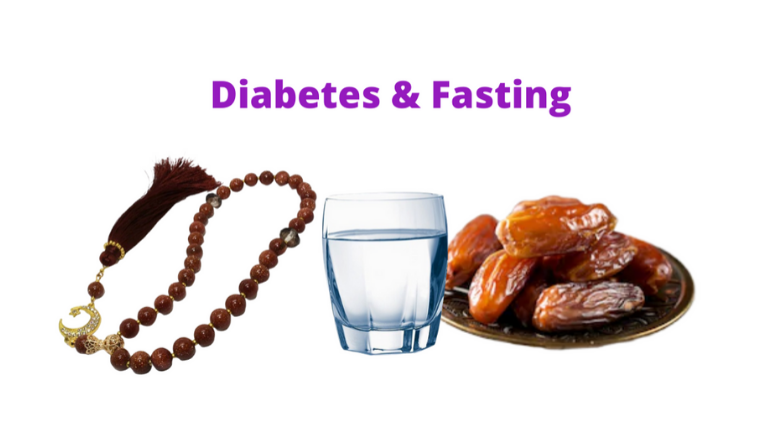Ramadan is the ninth month in the Hijri calendar. It is the month during which virtuous and devout populaces of Islam fast from Suhur at sunrise to Iftar at sunset.
This takes place without the consumption of water and food throughout the fast whilst keeping thoughts pure and practicing prayers and work.
Fasting during Ramadan is undertaken to promote chastity and humility and as an act of submission to Allah. Muslims from all walks of life resolve to fast during this holy month.
This includes the rich & poor, fit or sick, old and young, just about everyone. But some overlook the repercussions fasting could have on their health.
Since Ramadan is a lunar-based month, its duration varies between 29 and 30 days and the duration of the fast depends on the seasons and geographical locations, ranging from 9 to 22 hours.
This can take a serious toll on bodies that are even at a slight risk or affected by diseases such as diabetes which is one of the most common conditions caused by a combination of factors.
We help clarify the myths surrounding diabetes, repercussions on fasting with diabetes and precautions to stay healthy during Ramadan.
Diabetes can mainly be categorized as Type 1 and Type 2 diabetes. This includes people with poorly controlled diabetes, people with type 1 diabetes who take insulin or type 2 on a mixed insulin regimen or those who often have very high or very low blood glucose levels.
Under normal circumstances, diabetic patients are expected to eat every three hours and avoid fried, greasy and sweet food along with having medicines on time.
But this gets extremely difficult to follow during fasts thus forcing patients to generally take their medicines during Suhur and Iftar.
Diabetic patients must maintain extreme precaution if they are to undertake fasting and should do so under expert supervision.
Since fasting allows mainly two meals during the course of 24 hours including medications, diabetic patients must adjust their treatment plan according to the change in consumption patterns which eventually results in a change in metabolism.
Fasting can lead to complications such as Hypoglycemia which is deficiency of glucose in the bloodstream, Hyperglycemia which is an excessive increase in blood sugar levels or dehydration; diabetic patients experiencing the aforementioned in any form must discontinue fasting immediately.

Diabetic Ketoacidosis is another serious complication that can arise; causing vomiting, dehydration, breathlessness and even coma.
Patients with type 1 diabetes who have a history of recurrent hypoglycemia are at a higher risk if they fast.
Hypoglycemia or hyperglycemia may also occur in patients with type 2 diabetes but are generally less frequent and with less severe consequences as compared to patients with type1 diabetes resulting in seizures and unconsciousness.
Precautions During Ramadan
In case a diabetic patient wishes to fast, he or she must do so under the guidance and advice from experts and are recommended to break their fast immediately, if any warning signs occur.
It is highly advised amongst diabetes patients to go through health assessments months before Ramadan to discuss meal patterns and medicines.
Also, it is highly recommended that glucose level must be checked at least once a day.
It must be noted that despite the fasting, Ramadan is a month of festivity, and regardless of the geographies, a celebratory fare is prepared which includes food high in sugar and cholesterol content.
This must be avoided under all circumstances especially the consumption of highly refined and fatty food.
Diabetes patients are advised to consume a liberal amount of carbohydrates & high-calorie food along with fresh fruits and green vegetables, pulses, multigrain & wholegrain with increased fluid intake during Suhur.
Beverages containing caffeine and fried fatty foods should be avoided since they increase the risk of dehydration.
Apart from precautions in meals, sleep is also an important factor. An average person should get a minimum of six hours of sleep daily. It is recommended that a person should sleep at least 2-3 hours after Suhur.
While some people choose to overlook their health complications in order to fast, it must be noted that the idea of fasting isn’t to create excessive hardship on any Muslim individual let alone people suffering from various health complications and diseases including life-threatening ones as diabetes.
The Holy Qur’an specifically exempts anyone who is sick from fasting, especially if it may lead to harmful consequences for the individual involved.
Diabetes is a chronic metabolic disorder placing patients at a high risk of various complications if fasting is undertaken considering the disparity in the amount of food and liquid intake as well as the pattern and odd hours.
The Prophet Mohammad (Peace & Blessings be upon Him) said, “God likes His permission to be fulfilled, as he likes His will to be executed.” So the exemption is more than just a simple consent to not fast.
Only a healthy body can harbor a healthy mind to last the worship and dedication the month of Ramadan bestows upon us.
This article is from our archive, originally published on an earlier date, and highlighted now for its importance
